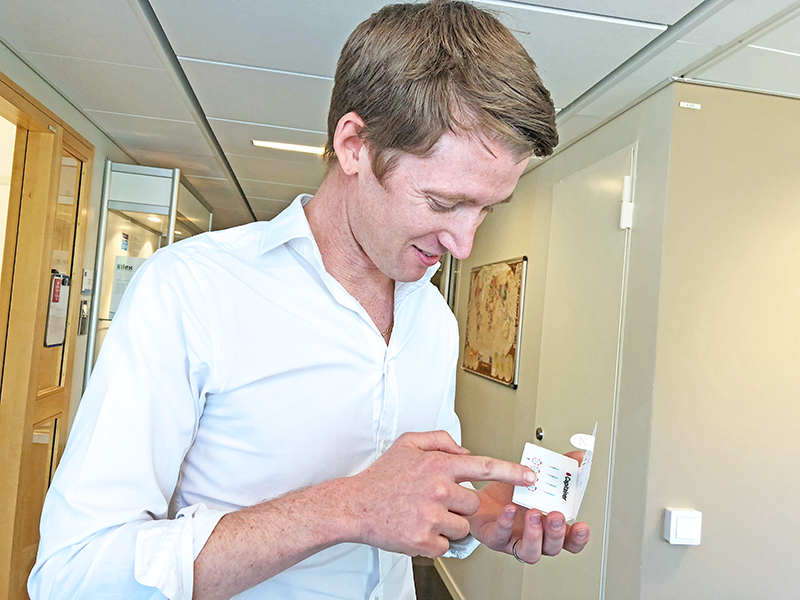Why KTH researchers should go to Boston

This fall, the KTH Innovation Brighter Program lands in Boston for the first time. We talked to Niclas Roxhed, Associate Professor in Micro and Nanosystems at KTH, who spent two years at MIT, to talk about the city and its opportunities.
Boston is home to world-class universities and is one of the world's strongest ecosystems for innovation. This fall, KTH Innovation will bring select KTH research commercialization projects and startup projects to the city, for an intense week of networking, inspiration and meetings in the KTH Innovation Brighter Program.
Niclas Roxhed is an Associate Professor in Micro and Nano Systems Technology at KTH. He is the co-founder of KTH spinoff Capitainer, using Dried Blood Spot sampling technology to transform the way we take blood samples. Now, Niclas is based on KTH Campus, but a few years ago he spent two years at MIT, working on developing oral delivery forms for biological medicine, where he worked with the iconic Dr. Robert Langer, who has over 1300 patents and patent applications, and has started over thirty spinoff companies from his research. In the Langer lab, entrepreneurship and academic excellence go hand in hand. Teams accepted to the KTH Innovation Brighter Program in Boston will visit Dr. Langer's lab.
What’s the most important thing you learned during your time in Boston?
What affected me the most was the insight that we at KTH can go much further to prove the use of our research. In my research environment at KTH, we often stop after developing technical proof-of-concept, and perhaps a first device, while at MIT they go almost all the way to proving the clinical effect. They’re also very good at working with press releases, and appealing to a broader audience. I think we could benefit in many ways from looking at the way they work.
This year, the Brighter Program lands in New York City, Munich and Boston. Why should a KTH researcher choose Boston?
Boston is an extremely dynamic environment. There’s so much going on, and the likelihood of connecting with an investor or potential partner or customer is way higher. I even met entrepreneurs at my daughter’s kindergarten. Additionally, my time in Boston definitely changed my mindset. The Swedish market is scanty in comparison: visiting Boston makes you think bigger and see that there is a huge market out there. If we had started Capitainer in Boston, we would probably have come much further than we have today.
Capitainer was one of the companies in the KTH Innovation Brighter Program. Would you recommend it to other KTH researchers?
Boston is amazing when it comes to innovation and entrepreneurship, and for a KTH researcher it’s a great opportunity to widen your views. Being exposed to a truly entrepreneurial environment, where pretty much everyone is thinking of starting their own company is extremely inspiring. I don’t think that there’s a magic formula in fostering such an environment, but one thing I think is key is to see and learn from colleagues who have started companies. Success inspires success, and by taking part in the program you can both inspire and be inspired. I would absolutely recommend it!
KTH Innovation Brighter Program
Read more about the KTH Innovation Brighter Program on the program page.
Apply to the KTH Innovation Brighter Program
Boston is suitable for deeptech and research-heavy projects within for example medtech, biotech, energy, robotics or AI. Application to the KTH Innovation Brighter Program is open until May 26th. Follow this link to start your application to the KTH Innovation Brighter Program.

